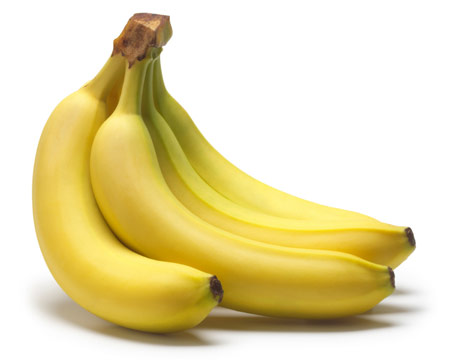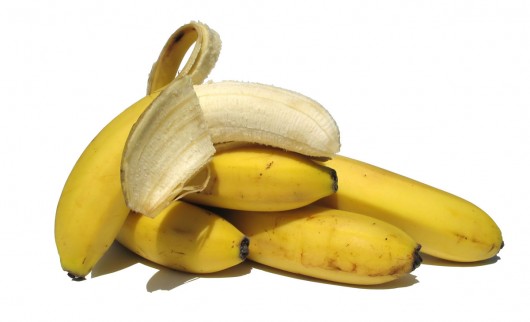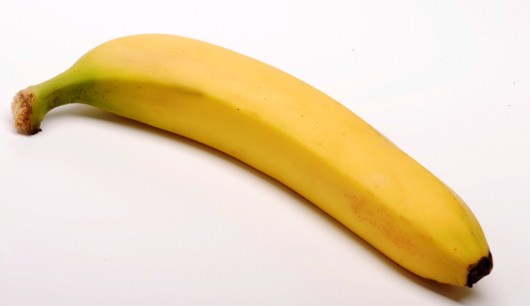Banana juice is one of the few fruit juices that are not widely available in commercial stores. Although this might seem inconvenient, homemade banana juice is much healthier because it does not have any added sugars. Plus, making the juice is very easy. Whether you choose homemade juice, or a grocery store version, you should understand the wide range of health benefits associated with the bananas used. Choosing the right products can also enhance the nutritional benefits when making a banana juice recipe.
Banana Basics
Bananas are considered as a tropical fruit, but their worldwide popularity as resulted in their availability in almost every grocery store around. The fruit is indigenous to Asia and Africa, but they are primarily grown in Central and South America today. Bananas grow in large bunches on trees that can grow up to 25 feet tall.
The banana is so popular for a variety of reasons. First, it is a nutritious snack that is very portable, due to its hard yellow skins. Since bananas are grown easily in bulk, they are more affordable compared with other kinds of fruits. Their versatility also allows for them to be eaten as they are, as well as cut or blended into a variety of different foods.
Banana Juice Benefits
Banana juice is one of the many ways in which you can consume a banana. This method is not only convenient, but you still reap the benefits of the fruit. Each average sized banana contains about 100 calories, and it does not contain any fat. Bananas are also a valuable source of vitamin C, dietary fiber, manganese and potassium.
This kind of juice is heart-healthy, and the fiber content of the bananas can help keep you satiated longer. There are generally no side effects with a few exceptions. If you consume too much potassium along with a great amount of banana juice, this could lead to hyperkalemia overtime.
Juice
Banana fruit juice primarily contains the creamy fruit. Since the fruit itself does not contain the water that other kinds of produce do, such as berries and citrus fruits, then other things are added to the product when blending. Milk and water are common ingredients that help to liquefy the bananas during processing so that the final product can be easily be consumed from a cup.
Banana juice in grocery stores are commonly combined with other fruit juices, such those derived from oranges and strawberries. The downside to this is that the banana content is very slim, and so you might not be able to reap as many benefits with this method. Also, commercial fruit juice contains a great deal of added sugar.
Can You Juice a Banana?
Although you might be able to find mixed fruit juice, straight banana juice is difficult to find. Plus many of the products taste overly sweet due to the extra sugar added during processing. A great alternative is to make banana juice at home. You will reap the all of the nutritional benefits of the bananas while saving money.
The best banana juice recipe consists of ripe bananas and your choice of milk or water. Milk creates more of a smoothie version, while water thins the final product—your choice depends on your preference. Instead of adding sugary fruit juices, consider adding in other fruits to complement the bananas. Strawberries are a great addition to homemade banana juice, and they also contain antioxidants.
Considerations
Potassium is not only an essential nutrient, but it is also a kind of electrolyte that can balance out sodium levels in the body. The average banana contains 12 percent of your daily value of this kind of mineral, which makes it an excellent choice if you need to eat more potassium. Many athletes consume banana juice as a way to increase potassium that is lost during a workout. At the same time, this kind of juice can be soothing for gastrointestinal ailments, such as diarrhea and constipation. A banana smoothie is by far the most convenient method of consuming the fruit in all of these scenarios.
More Articles On Bananas And Banana Juice
Best Bananas for Banana Juice and How to Choose Them
By choosing the best bananas for juicing, a smoothie made …Banana Juice Side Effects – Can You Drink Too Much Of It?
There are a few banana juice side effects that range …5 Health Benefits of Banana Juice
Whether you’re trying to lose weight or just have a …Banana Nutrition Facts
Banana Nutrition Facts Betaine 0,1 mg Calcium 5 mg Calories …


